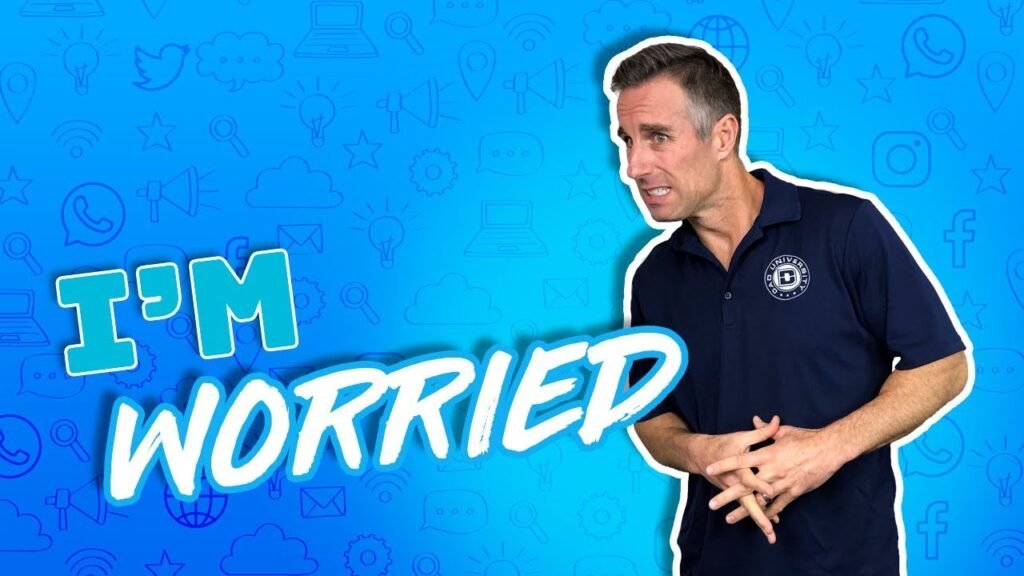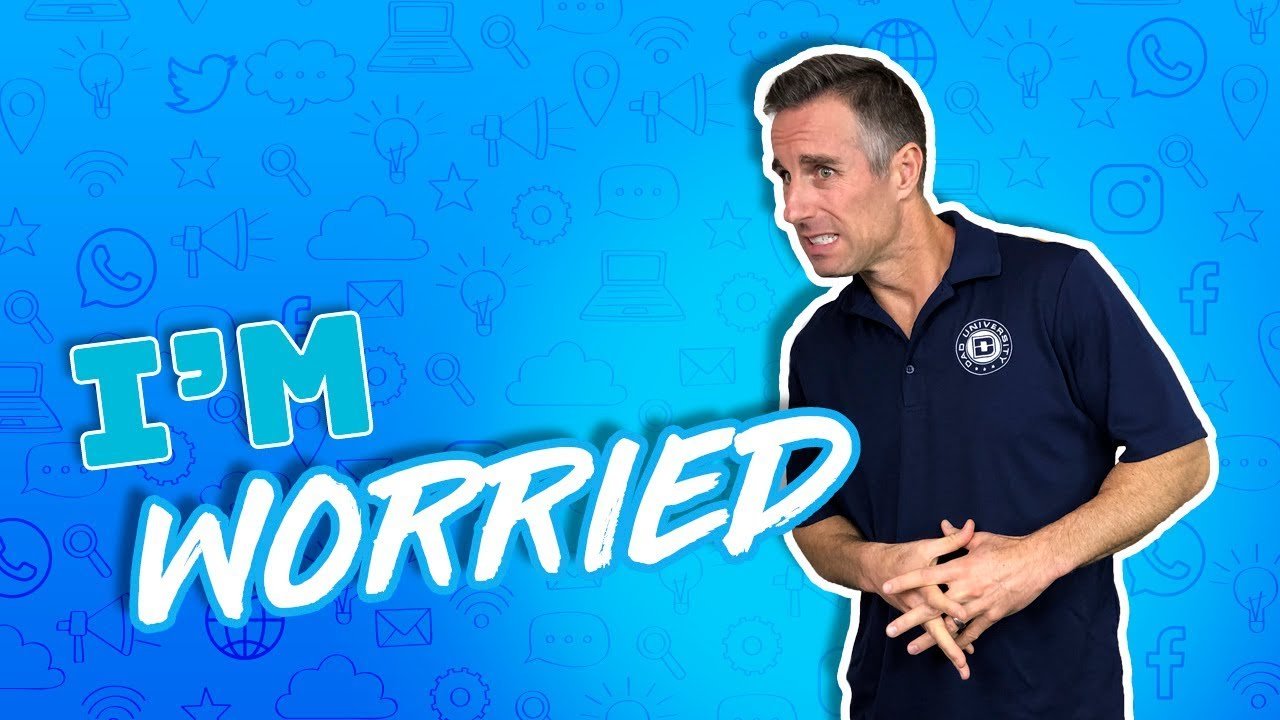In “The Impact of Social Media on Our Kids,” Dad University explores the growing concerns surrounding the influence of social media on children. Teachers are finding it increasingly difficult to engage and educate students due to their shortened attention spans and desire for instant gratification. While social media can serve as a powerful tool for connection, there are also inherent dangers associated with its use. Children are starting their online presence at a young age, which can have detrimental effects on their developing brains. Dad University acknowledges the benefits of social media but emphasizes the need to be cautious and mindful of its impact on children’s well-being.
The video highlights a conversation with a teacher who reflects on the challenges of capturing students’ attention, as well as their constant expectation of immediate feedback. Dad University acknowledges the benefits and opportunities that social media offers but raises concerns about its negative effects on both children and adults. Overall, it stresses the importance of understanding and managing the way social media is utilized to ensure a healthy digital experience for our kids.
Introduction
As social media becomes increasingly prevalent in our society, it is important to discuss its impact on our children. While social media can be a powerful tool for connecting people, there are concerns about how it is affecting kids. The negative effects of social media on children range from decreased attention span to challenges in offline engagement. In this article, we will explore these concerns in detail and discuss strategies for parents and guardians to navigate the digital world with their kids.
Decreased attention span
The rise of social media has been accompanied by a noticeable decrease in kids’ ability to focus. With their constant exposure to engaging and entertaining content, children find it challenging to concentrate on tasks for extended periods of time. The constant scrolling and clicking on social media platforms have trained their brains to seek instant gratification and novelty, making it difficult to stay engaged in offline activities such as reading or solving complex problems.
Furthermore, the habit of multitasking, often encouraged by social media platforms, has a detrimental effect on learning. Numerous studies have shown that multitasking hampers information retention and cognitive processing. When kids are constantly switching between tasks, their ability to absorb and retain information decreases, hindering their academic performance and overall learning experience.
To address these issues, teaching strategies that promote focused attention and limit multitasking should be implemented. Educators and parents can encourage activities that require sustained concentration, such as reading books or engaging in hands-on projects. Additionally, setting clear boundaries and time limits on social media usage can help children develop healthier habits and improve their ability to focus on important tasks.
Immediate feedback expectations
One of the consequences of social media usage is the increased demand for immediate feedback. Kids are accustomed to receiving instant notifications, likes, and comments on their posts, which fuels their need for constant validation. This expectation for instant feedback can negatively affect their learning and development.
In a classroom setting, students may become impatient waiting for test scores or assignment feedback. This mentality of needing immediate results can create a sense of entitlement and a lack of resilience when faced with delayed gratification. It is important to teach children that not all feedback can be immediate and that waiting for feedback can sometimes be valuable in the learning process.
To manage feedback expectations, educators and parents can incorporate strategies such as providing timely feedback when possible, setting realistic timelines for feedback, and fostering a growth mindset that values effort and progress over immediate results. By teaching children the importance of patience and perseverance, we can help them develop resilience and adaptability, which are crucial skills for success in the digital age and beyond.

Dangers of early exposure
Another concern regarding the impact of social media on children is the negative effect it has on young and developing brains. Introducing children to social media at a young age may overload their still-developing neural pathways and negatively affect their cognitive and emotional development. The constant exposure to curated content and the pressure to conform to social media standards can lead to unrealistic expectations and an unhealthy focus on appearance and popularity.
Parents and guardians bear the responsibility of setting age restrictions and monitoring their children’s online activity. It is crucial to create a safe digital environment for kids by using parental controls, ensuring age-appropriate content, and having open and honest conversations about the potential risks and dangers of social media. By creating boundaries and fostering a healthy relationship with technology, parents can help protect their children from the negative effects of early exposure to social media.
Social comparison and self-esteem
Social media platforms often foster a culture of comparison, where individuals constantly compare themselves to others’ curated lives. This can have a detrimental effect on children’s self-image and self-esteem. Seeing their peers’ edited and filtered photos, accomplishments, and seemingly perfect lives can lead to feelings of inadequacy and low self-worth.
To counteract these negative effects, parents and educators should promote positive self-esteem in children. Encouraging open discussions about self-worth, focusing on personal strengths and achievements, and teaching children to appreciate their own uniqueness can help build their confidence and resilience against the pressures of social media. Additionally, fostering a supportive and inclusive offline community can provide a strong foundation for children to develop a healthy sense of self.
Cyberbullying and online harassment
With the widespread use of social media, cyberbullying and online harassment have become significant concerns for children’s safety and well-being. The anonymity and accessibility provided by social media platforms can embolden individuals to engage in harmful behavior towards others. Cyberbullying can have severe consequences, including emotional distress, depression, and even suicide.
Parents, educators, and schools need to be proactive in preventing and addressing cyberbullying. Creating a safe and inclusive environment that promotes empathy and respectful online behavior is crucial. Educating children about the warning signs of cyberbullying, providing resources for reporting and seeking help, and implementing strict disciplinary measures can help deter cyberbullying and ensure a safe online experience for all children.
Sleep disturbances and mental health issues
Excessive social media usage has been linked to sleep disturbances and mental health issues in children. The blue light emitted by screens disrupts the production of melatonin, a hormone that regulates sleep, leading to difficulties falling asleep and poor sleep quality. Moreover, the constant exposure to social media content, including negative news and cyberbullying, can contribute to anxiety, depression, and low self-esteem.
Promoting healthy habits and implementing a digital detox can mitigate these negative effects. Establishing consistent bedtime routines, limiting screen time before bed, and creating technology-free zones in the home can improve children’s sleep quality. Additionally, encouraging open conversations about mental health, providing access to counseling services, and teaching stress management techniques can help children navigate the potential challenges associated with social media.
Strained interpersonal relationships
While social media is designed to connect people, it can also strain face-to-face communication and interpersonal relationships. Excessive use of social media can lead to reduced empathy and social skills, as children increasingly rely on digital platforms for social interaction rather than engaging in direct, personal conversations. This can hinder the development of essential social skills, such as active listening, emotional intelligence, and conflict resolution.
Encouraging balanced offline and online interactions is vital. Parents and educators can promote activities that foster face-to-face communication, such as family dinners, group outings, and recreational activities. Creating a supportive and inclusive environment where children feel safe expressing themselves can help counteract the negative impact of social media on interpersonal relationships.
Privacy and security risks
Social media platforms expose children to potential privacy and security risks. The online world is rife with online predators who may try to exploit children’s personal information or engage in grooming behaviors. Additionally, the risk of identity theft and unauthorized access to personal accounts is a concern when children share sensitive information online.
Educating children about online safety is paramount. Parents should teach their children to be cautious when sharing personal information online, instruct them on the importance of privacy settings, and encourage them to report any suspicious or threatening behavior. By instilling a sense of vigilance and responsible digital citizenship, parents can help protect their children from potential privacy and security risks associated with social media.
Conclusion
The impact of social media on kids is a topic of concern that requires attention and proactive measures from parents, educators, and society as a whole. While social media can have positive aspects, such as facilitating connections and providing access to information, the negative effects cannot be ignored. Parental guidance and education are crucial in helping children navigate the digital landscape and find a healthy balance between online and offline activities. By addressing the concerns discussed in this article and fostering a supportive and responsible digital environment, we can ensure that our children harness the full potential of social media while mitigating its negative impact.

